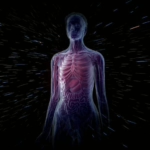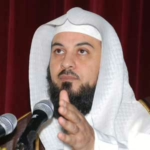Human rights defender Mansour Omari on the search for justice after the fall of Assad

Mansour Omari is a Syrian human rights defender, journalist and torture survivor. In 2012, he was detained by the Assad regime for his work documenting the names of people being disappeared and detained. Upon his release a year later, he smuggled out the names of his fellow prisoners, written with blood and rust on scraps of cloth. His story features in the 2017 documentary “Syria’s Disappeared”. He is based in Sweden and has an LLM in Transitional Justice.
The Assad regime fell in December. What does that mean to you?
All of a sudden I have a homeland. I didn’t before. When Assad was controlling Syria I was wanted because of my work with the Syrian Centre for Media and Freedom of Expression, for my work as a journalist and for documenting the detainees’ names. So I couldn’t go back to Syria. It was a dark place. I was born and raised in a Syria ruled by the Assad family. I [didn’t] live in a free country … Now it’s open and I can go. This is a totally new thing. It takes a lot of thinking and reconsidering.
When Syria was liberated, the doors of the prisons and detention centres were opened and the detainees released. How significant was this?
It equals the fall of the regime for me. When I worked in Syria, I was documenting the detainees and since my own release from detention I’ve been advocating for all the arbitrarily arrested detainees, all political prisoners, to be freed. And suddenly they are all free – except for the tens of thousands who disappeared for ever.
Does it feel like a weight has been lifted?
Yes, exactly. Before I always had a feeling of urgency, because every day that passed by, people were dying in detention. I felt it physically, like something was on my shoulders. This duty to save lives has now ended. I feel lighter. But the number of people released was so much lower than the number documented in detention. [The Syrian Network for Human Rights reported that over 100,000 people held by the Assad regime are still unaccounted for.]
I knew that those who were detained in the early years following 2011 were very unlikely to still be alive … but didn’t want that to become reality. The majority of the disappeared are nowhere to be found and they must be dead.
Fadel Abdul Ghany, the head of the Syrian Network for Human Rights, broke down on television sharing the news that most of the missing were dead. What did you think of that moment?
I think it was important for Fadel to announce the shocking truth because the Syrian people and the international community must know and face its consequences. I think he absolutely did the right thing. However, this does not mean that families of the disappeared should stop striving for the truth and just accept that their loved ones are dead. Looking for every piece of information about their loved ones is a long path and an essential part of the closure they must reach.
We estimated that the average time a human being lasts in a detention centre is around one year and a half, based on the evidence. If you’re moved to a prison, you can survive for longer, even though Sednaya prison was also hell. I know from my own experience – you get beaten and you get wounds and then those wounds get infected. At first, your infections can heal. But then your body gets weaker and the immune system gets weaker. I never went outside once, I never saw the sun. There was very little food. I lost 38 kilos in detention. I was lucky to be transferred to Adra prison after nine months, but I was like a skeleton.
I wanted to die. When you are tortured daily, the end of your life is salvation. It’s comfort. Almost everybody there wished to die. It was a sincere wish because of the torture and humiliation.
When you left detention, you smuggled out the names of 82 people who were detained with you. Since the fall of Assad, have you found any more of these people?
Not yet. I found six of the names on lists of people which have circulated, showing the date of their detention and the date of death. But my focus now is tracking each and every person on that list to discover their fate, with the help of their families and the government, as we can now access official records.
How many of the 82 do you already have confirmed information about?
Thirteen. And four of those are alive, but I’ve known about those [the survivors] since at least 2015. I don’t expect that any more of them will be alive, and this breaks my heart. I knew them, I lived with them, I ate with them, I was beaten with them. So I want to find out what happened to each of them after I was released. I will write the story of each one. They asked me to help them and I did my best but I couldn’t. Many times they said, “Don’t forget us.” Their stories should be told.
Lots of official documentation is being found in detention centres and prisons. News reports show people rifling through it – what’s happening to secure those documents as evidence?
It’s still not secured. The de facto government should be securing these places because they are crime scenes and evidence must be preserved, including forensic evidence. They should be guarding them, not letting anyone in. One document can contain the names of people held in a specific place and if this piece of paper is ruined, those names could be lost for ever and we’ll never know anything about their fate.
As sites of mass graves are being uncovered in Syria, what should happen? Do you want to see exhumations or for the dead to be left undisturbed and memorialised?
The most common opinion from the Syrian human rights groups and families – and it is my opinion too – is that excavation is important. Every Syrian family who has lost a loved one wants to know where they are. We must have a grave to visit. So they should be excavated, and DNA tested, and every bone should be registered. We should know the numbers killed and the story of every body.
Previously Russia blocked Syria from being referred to the International Criminal Court. What do you think will happen now?
I want to see the first elected Syrian government adopt the Rome Statute [the founding treaty of the ICC], to protect the Syrian people. Syria could then invite the ICC to have a mandate and there would be no need for a Security Council vote [therefore removing Russia’s power to veto].
What are your hopes for justice?
I hope Syrians shape the justice they want. It should be the product of dialogue and negotiation between all Syrian parties. It must rigorously uphold the rights of victims and their families and adhere to international human rights standards. All Syria-related trials in Europe should be live-streamed on Syrian state television with simultaneous Arabic translation provided by the court itself.
Syria must establish a fair judicial system that guarantees freedom from torture and mistreatment. I hope justice will not be delayed, nor be the victor’s justice. It should be justice for all Syrians.
Learn more about the documentary “Syria’s Disappeared” at syriasdisappeared.com.
This article is from New Humanist’s Spring 2025 issue. Subscribe now.


